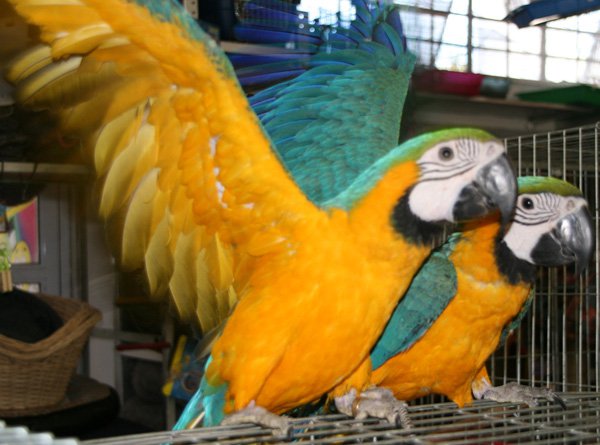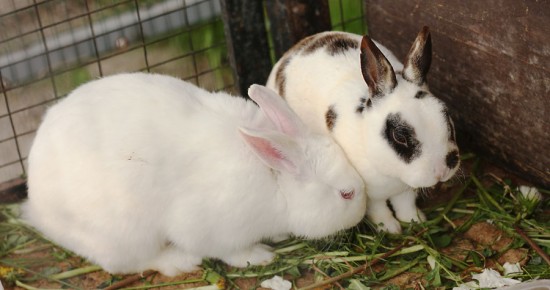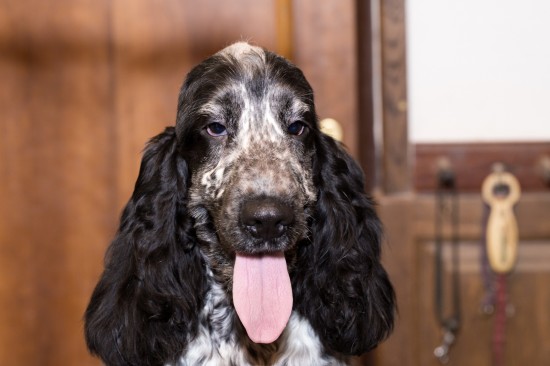Do you own an aggressive dog? This can cause problems for you, your family and neighbors, not to mention, of course, the dog itself. Obviously, it is easier to train a puppy, but with a little extra time and patience you can train older dogs.
The first thing to consider is why the dog is becoming aggressive. Is it to certain neighbors or particular members of the family or just to everybody. To be aggressive to ones master is unusual for dogs, and possibly means you are not respected as the alpha person. To gain respect as the alpha 'dog' is reasonably easy, you feed them, you walk them, and you take the main responsibility for the dog's training.
Try not to be afraid of your dog, as this shows them they are the superior. Give the dog treats for good behavior and make a lot of fuss of them, DO NOT play rough with an aggressive dog, this would probably end in tears before bedtime for you both. You should never physically punish your dog; a stern word is always enough. It is a good idea to have the same command, as often as possible, for instances when your dog is doing something unacceptable.
When your dog barks or growls try just saying 'NO', in a stern voice, and then distract it with a treat of some description. Do not actually give the treat until the dog has stopped for a second or two, then give the treat and some fussing. Simple though this sounds it is often very effective. It is important to state here that if your dog is aggressive because of long periods of being tied up or being teased then the trust factor will take a lot longer to build.
Smacking your dog will also cause problems rather than solve them, it only teaches the dog violence and aggression. The more time you spend and the more notice you take of your dog the better they will be and the happier all concerned will be, your dog wants to be loved and be happy and make you happy.
Should you have had a dog for some time and they suddenly become aggressive then give consideration to illness, and decide whether to contact a vet. Consider where the dog is kept or spends most of their time, can they feel safe, is anybody teasing or mistreating them. Some dog breads are more aggressive than others and these will of course take longer to train.
Remember the most common causes of aggression in dogs are fear or territorial. In the case of fear you can, if safe to do so, gradually expose the dog to whatever they fear. Do this in short bursts and always make a fuss of them whilst doing so, this will show them that you are not afraid and as long as only exposed for short periods they will gradually become used to it and fear it no longer.
Obviously this does depend on the fear, as in should it be a fear of guns do not sit next to your dog firing a gun in the air. When fear is involved good common sense must prevail, if the animal fears something it does not need to go near or that is inherently dangerous then consider whether or not it is necessary to acclimatize them to it.
Territorial aggression is a little harder but with time can be achieved. Invade the dog's space slightly and wait a few seconds before calling the dog to you. When the dog comes to you distract them with a treat and then make a fuss of them. When the dog does not bark or snarl at you then invade the space slightly further, do not always invade until they bark or snarl, but just a little and then repeat calling and treating. You will find over a period of weeks that the territorial problems stop.
If the territorial problem is aimed at a particular individual but not the dog's main care giver then get the main care giver to take this person into the dog's space and make a fuss of the dog with them present. When the dog is calmer make a point of being friendly to whoever it was and then introduce the dog to them, being aware of the person's safety.

 Perfect Services at Veterinarian Hospital in South Arlington
Perfect Services at Veterinarian Hospital in South Arlingt
Perfect Services at Veterinarian Hospital in South Arlington
Perfect Services at Veterinarian Hospital in South Arlingt
 Why Is My Goldfish Bullying His Tank Mates?
Why Is My Goldfis
Why Is My Goldfish Bullying His Tank Mates?
Why Is My Goldfis
 The Proper Cleaning Of Rabbit Hutches
The Proper Cleani
The Proper Cleaning Of Rabbit Hutches
The Proper Cleani
 Cocker Spaniel Hereditary Health And Genetic Diversity
Cocker Spaniel He
Cocker Spaniel Hereditary Health And Genetic Diversity
Cocker Spaniel He
 How To Make Life Easier For Guests With Cat Allergies
How To Make Life
How To Make Life Easier For Guests With Cat Allergies
How To Make Life